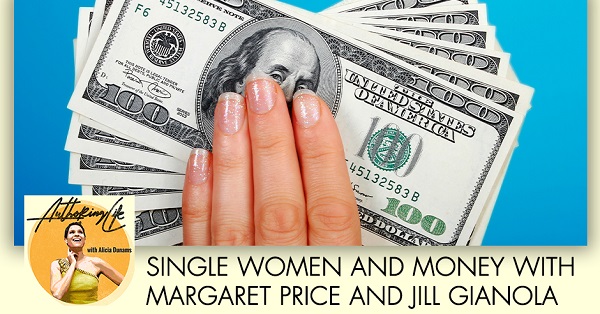
Society often sees single women as struggling individuals when building wealth. They have no partner to provide for them, so everyone assumes they work hard to make ends meet. However, choosing singlehood must not make you less than married women, even if they make more money than you. All you need is the right mindset and proper financial education. Margaret Price and Jill Gianola provide valuable financial advice through their book, Single Women and Money. They share with Alicia Dunams how to achieve financial freedom even without a man or when hit with various economic constraints. Margaret and Jill also reveal why single women should consider estate planning even if they are not of senior age.
—
Listen to the podcast here
Single Women And Money With Margaret Price And Jill Gianola
We have a co-authorship in tow. They’ll be talking about the book called Single Women and Money, which is a great topic. I’m their target audience. I’m excited to dig into this book. We’re going to be talking to Margaret Price, who is an award-winning journalist. She has been an Editor at Bloomberg Wealth Magazine and is an International Editor at Crain Communications’ Pensions & Investments. We’ll learn more about Margaret in this episode.
We have Jill Gianola. She is a certified financial planner and recognized as one of the Top 100 Planners in the US by Mutual Funds Magazine, and Money Magazine featured her advice in Secrets of America’s Top Advisors. The book they co-authored together is called Single Women and Money. Margaret and Jill, it’s great to have you here.
Thank you so much for having us.
Margaret and Jill, why did you write this book, Single Women and Money?
I live in New York City, where there are many single women. Over the years, I’ve seen how these women typically live on one income and have to survive on that one source of money versus dual-income couples. This is constrained single women’s standard of living. On top of that problem, women overall face the gender pay differential. Women earn a median of $0.83 for every $1 a man earns. There had to be a way to help balance the financial scales and provide women with information to help them help themselves but also to alert society to this economic constraint facing single women.
During Women’s History Month, it might be even equal payday. I was on Instagram and saw a couple of posts around that. I saw specifically how, on the dollar, a woman makes 83% and that’s a particular type of woman too. It’s also drilled down on race and social-economic background. There’s a pay gap. Especially in a place like New York City, you’re going to get the pinch. My daughter’s a single young college student in New York. It’s a tough place to learn financial skills. Jill, do you want to jump in and share? Why did you write this book?
I was lucky enough to get connected with Margaret, who had the idea. It resonated with me as well because I work with several single women in my practice as a financial planner. I was noticing how fragile their situation often was. It didn’t take much to knock them off the plan because they didn’t have that second income or maybe didn’t have a sufficient income to build a safety net.
It was difficult for single women to achieve their goals. Even the clients I work with who are financially sound, have it together and done well, still have that nagging like, “Am I going to end up as a bag lady?” It’s that playbook running in their mind. I was talking to a client and she was asking me, “Why did you write this book for single women?”

I said it’s about this lurking idea of a bag lady. She goes, “I get that.” I thought, “You’re doing quite well.” Being solely responsible for your life, money, resources and future is a scary thing. We wrote this book to provide some resources and specific advice on how you can reach your goals even as a single woman and a call to arms about, “Why aren’t we paying attention to the plight of single women?”
There is another dimension, which is the lack of financial education that has been afforded not only to everyone but specifically to women. Sadly, women have been groomed to be wives and mothers, which is great, except that they’ve been steered toward jobs that are supposed to accommodate that. These are lower-paying service jobs or sometimes jobs in the arts, as opposed to the higher-paying jobs that were perceived to be for men that might be in Math and Science executive roles or The Wall Street doctors. Women have been shortchanged by society in terms of their ability to earn the same living as men. We felt that had to change. Something had to be said to encourage women to aim for the same high goals that men aim for and assume they should be able to take on the same jobs as men.
One of the reasons is because data show that throughout their adult life, every woman is likely to be single at some point, either in their younger years, older years or in the middle, if they happen to be married but got divorced. The odds are that you’re going to be single at some point. That means you’re going to be responsible for your money even if society said that you should marry someone and your partner anyway will take care of you and pay the bills. The reality is something quite different.
I would love for you to jump in on some of the research in your book. You shared that women make $0.83 on the dollar. When you share about single women who get to manage their money and might not have that cozy net to fall into like a net to protect, what about men who are married to women who don’t work and have family responsibilities as well?
The world needs two incomes. It’s all subjective based on the amount of money someone makes but that could be a tenuous place as well to be a single earner, whether you’re a man or a woman, have kids and someone else to take care of. I called myself a single mom. I had stages where I was married very early on. I was in an engaged relationship where he footed the bill for the house.
When that relationship broke down and I went back out on my own again, I had to relearn that hunger that I had before that relationship and pay for everything myself, which I’ve regained. I choose not to be married because I always want to be in charge of my finances and don’t see the benefits of it. I have a daughter who lives in New York and has very expensive taste. Money making, inflation and all of these need to be our top skillset as women, men and anyone making money.
We have a whole chapter on single moms. If you’re a couple and there’s only one earner and you have children, at least the other member of the couple can be child-caring. If you are a single mom, living on less than what a man typically makes, pay childcare which the average is $30,000 a year, it’s crazy and unaffordable. It is more difficult to be in a married couple where there’s only 1 earner compared to 2 earners, but the single mom still has it worse than any of those scenarios. They had more burden.
I saw that coming. That’s one of the reasons I started a business when I had my daughter. I said, “I need to stay home.” I started an at-home business and I’m still doing it. I worked at night while she would be sleeping. I was the main caregiver as well. It made me who I am. I’d adapted.
Don’t eliminate things that are vitally important to you. You don’t have to feel somewhat deprived just to get the same income as wealthier people.
There’s something I’d like to point out that Jill and I like to tell people. We hear about inflation and it is pretty tough on budgets. This applies to single women in the sense that they have less money and it’s a problem when prices rise. You don’t have to eliminate things that are vitally important to you. Sometimes the problem is that some people on lower-income, regardless of whether they’re married or single, could feel that they are somewhat deprived. They don’t have the same income as wealthier people.
However, we tell women that when you make out your budget and this applies because, with inflation, you’ve got to be aware of your income versus your spending, make sure in your budget, you include money for the things that are most important to you. You can then knock out the things that you can postpone, anything from a new sweater to possibly a washing machine, whatever is not essential. Keep in the things that are essential because they make you happy and you value them.
Budgeting doesn’t have to be this brutal, depressing sense of deprivation. It can accommodate and prevent you from getting into debt you don’t want while still maintaining the standard of life you want to do. Very careful but thoughtful budgeting is key all the time, especially during this inflationary period. It’s a good idea to redo your budget with an eye toward what you want and what you can postpone.
This is a good time for us to jump into the book. I’d love for you to share maybe your three top life lessons or topics like budgeting. What are some of your suggestions on how single women can budget?
First of all, the message we preach is to make sure your budget includes the things that are most important to you. Beyond that, it depends on how old you are. What’s going to be important to you in your 20s is not going to be the same thing that’s important to you when you’re turning 65, 45 or possibly even 55. You make out the list of assets and liabilities, things you’re spending money on, what you can afford and what you can’t afford. Make sure you’re not incurring high-interest debt at all like credit card debt. In our book, we’re talking about how it breaks down in your different age groups.
In your twenties, for example, probably you’re paying off student loans. You’ll factor that, particularly your facet into your budget. When you get into your 30s and 40s, you’re starting to think about a permanent home. You may not want to keep renting. Homeownership becomes more of an issue. It takes up a minimum of 48% on average of single women’s budgets versus the recommended 30%. You have to budget around it. As you’re in your 50s and 60s, you’re planning around retirement, making sure you’ve got your retirement budget set and how much you’ll need to spend in retirement and take out of your retirement savings.
At that point, if you’re lucky, you certainly won’t be paying off your student loans and home mortgage anymore, which would be great. Throughout these various periods in your life, you’re creating new budgets around the particular needs at the time. If you have family, their costs will factor in college, food, clothing and shelter. It’s a question of being cognizant of what comes along at what point and adjusting for it.
Your book, Single Women and Money, goes in-depth about not going into debt and budgeting. Is there another tip that you’d like to share from your book?
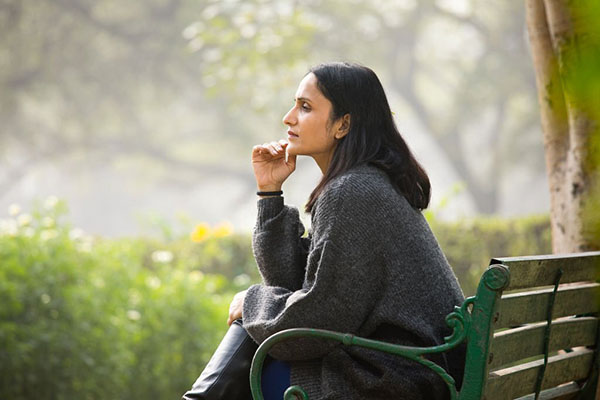
We do have a chapter on debt. Debt is a millstone. It can keep dragging you away from the life you want to have. It’s not to be too black and white but there is good debt and bad debt, sensible debt and not sensible debt. Sensible debt is a debt you incur on something that is giving you continuing value or even growing in value.
A home mortgage is one of those. Houses provide housing and shelter for you but they also tend to grow in value. Let’s not overdo it but student debt can be a very valuable resource because you don’t have to save up your tuition ahead of time. You can jump in, start learning, get those skills and get a better job that can reap benefits over your whole life.
A car is not exactly an appreciating asset as we know cars don’t grow and value. If it gets you to your job, that’s an important piece. Car loans, mortgages and student loans are all sensible debts. The debt that’s not sensible is when the debt lasts longer than the item itself. If you’re going to go put a vacation on a credit card and it’s going to take you three years to pay it off, that’s not a good idea.
If you’re going to put a new wardrobe on your credit card and it’s going to take you six months to pay it off, it is not a good use of it, particularly because it’s going to be high-interest credit card debt. We encourage people to look at what debt you’re incurring. If you’re already in debt, have a plan. It’s not going to go away tomorrow. We include some calculators and some tools for figuring out how to pay it off.
Debt is something that is too easily pushed aside because it is a painful subject. With a few tools and ideas of how to embrace it, you can get to the other side. When you finish paying off a debt, it’s like getting a pay raise. All of a sudden, you have more spendable income. You can put it toward the future and indulge yourself in some things that you weren’t able to buy before. It’s a huge relief.
For everyone that’s reading, you can go buy Single Women and Money at Amazon.com or your local bookstore. Lookup Single Women and Money to purchase the book. I would love to jump into another lesson learned. What else would you want to share from your book that’s something that would benefit our audience at home?
If part-time strike and you find yourself in some horrible financial situation, act quickly. Call up your credit card companies, get in touch with your bank and check for government assistance, food stamps, IE or SNAP. Do it as quickly as possible to save yourself from further ado and get the resources you need right away.
We also preach estate planning at every adult age. People think, “Estate planning has a horrible name. It sounds like a mansion in Newport.” Estate planning is making out provisions for you. It’s your will, financial power of attorney and healthcare proxy. People think, “This is for all folks.” It’s not. It’s a plan for your life, much more than a plan for your death.
Budgeting doesn’t have to be a brutal process. It must accommodate and prevent you from getting into debt and maintain the standard of life you want.
Even more important than making out a will is to designate somebody to be there as your healthcare proxy and tell the doctor what to do in case you’re in a coma. If you’re also non-functional, you’ll have a financial power of attorney to pay your bills if you become incapacitated. The reason we say that this isn’t only for old folks but it’s for everybody is that you could get into a terrible car accident for example. You could be 21, 42 or a senior. Things can happen to you at every age.
If you don’t have these documents in place, you could be up against a problem. Let’s say you’re in the hospital for a long time and a single woman. Who’s going to pay the bill if you are in a coma? We began to see the value of this during the height of the COVID crisis when people were on ventilators. They are not necessarily old people but anybody could end up on a ventilator. They were unable to function. People had to function for them.
It’s important to create this three-prong process but even more important than the will is having a designated power of attorney for your financial affairs and healthcare decisions. It could be the same person or somebody else. You ask somebody whether they’d be willing to take on those roles for you. You find somebody that you trust. Most of those people would think of a family member. That’s fine.
If you live in California and your whole family is in Maine, it’s not always very easy for them to be able to jump in. Let’s say you’re in the hospital. It’s hard for them to be able to function in that way. You could designate a local close friend, business associate or attorney. As long as you do it, it can be essential to your survival to have this done.
I put my dad as my emergency contact. Since my daughter’s turned eighteen, I’ve been using her as my emergency contact. There was an episode on Sex and the City where one of the characters was still using their father as their emergency contact. That was my reality. Being a single woman, who can you trust with these types of decisions? It would be a family member. Those are all important things. You said a three-prong approach. Can you give me the three prongs specifically?
They can be further refined but the very basics are creating a will for what happens to your property after you’re deceased. There is the healthcare power of attorney, which empowers someone to act on your behalf to tell the doctor what to do about your condition when you can’t do that. There’s the financial power of attorney that you give to someone to operate on your financial behalf or pay bills when you are unable to do so.
Sometimes you’ll see that taking place if an elderly parent has dementia. The designee would pay their bills. Estate planning can get more refined. You can get into trusts and other things but as long as you take care of those three prongs, it’s very important. If you are a single mom or parent, be sure that you’ve done all of those things by the time your first child is born. You have to protect them from day one. You must have all of those done ideally before the birth.
I’m sure that you recommend a life insurance policy for a single mother or parent.

Yes. If you have a minor child who depends on your paycheck, if something happened to you and your paycheck, you would want life insurance to take its place.
This is a great time to hear about some of your influences and things that are important to you. We’ll do this in the lightning round. Say the first thing that comes to your mind when I ask you this question and we’ll get started with Jill. What’s going to be your legacy?
I hope it’s my family but also all the work I’ve done with clients and my book.
What’s your favorite book?
My favorite book is Middlemarch because it was written by a woman who had to disguise herself by using a man’s name. Back in the day, nice women didn’t write books. It’s a wonderful story and addresses so many of the issues of the day. I have a huge admiration for George Eliot for that book.
Who is your favorite author, Jill?
I have two. One, I have a weakness for well-written mysteries and Louise Penny does it better than anyone. She’s amazing. She captures the atmosphere. You learn so much in those books. I also admire Jane Bryant Quinn, who has written several personal finance books. She does an incredible job of bringing the sometimes intimidating subjects of personal finance down to the level of the reader. It was something I aspire to in this book. She does it very well.
What are you reading next?
Debt is a millstone. It can keep dragging you away from the life you want to have.
I’m reading Cloud Cuckoo Land, which is very interesting. I don’t know if you’ve read it at all but it takes a lot of Byzantine turns and all, so I’m trying to get into that.
You enjoy your fiction. That’s what I’m getting.
I do. I made a lot of nonfiction but to kick back and delve into another land, I love fiction.
What are you writing next, Jill?
What I’m writing next is a newsletter for my clients. They know that they are not supposed to panic about their investments and all, even with the terrible things that are going on in Ukraine. It doesn’t hurt to reassure from time to time. We’re crafting a message to send to our clients to say, “We have your backs. Stay the course. We always keep money in safe places for you for these kinds of situations. It’s stressful enough to watch the news. Don’t stress about your money.”
That’s a good lesson. Being a business owner and service provider, we always want to make sure we communicate with our audience. Margaret, we’re going to jump over to you. What’s going to be your legacy?
I do hope that I am doing and have done what I can for friends and family. Besides that, I have hoped that my writing might be able to do something for someone. You never know. There was one very heartening incident. Years ago, I wrote an article for the New York Daily News and it was about insurance.
It sounds boring but I interviewed this couple who I met in Central Park, New York. They were in the park for a particular event. The woman was telling me that her husband had esophageal cancer and she had just gotten over breast cancer. They were at the end of their rope to find a good doctor for her husband’s esophageal cancer but nobody would help them. No insurers would provide coverage for them.
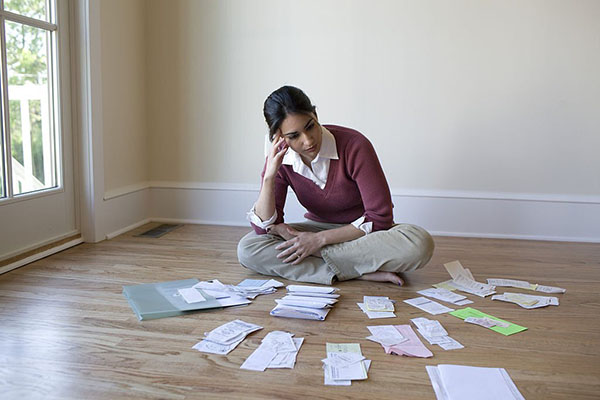
I wrote this article and featured them on it. The day after the story came out, they got a call from an insurance company in New Jersey where they live and were hooked up for insurance. I thought, “If you can help one person at a time and if your work can do one thing for one person, it is so gratifying.” You never know but sometimes you do get the pleasure of hearing about how things work out for the best.
Thank you for sharing that story. Your legacy is already happening right here. What is your favorite book?
I adore The Overstory by Richard Powers. It’s got so many elements in that. The writing is fantastic. He’s brilliant but the story has all kinds of threads of situations and humanity issues we face but a depth of understanding of the human condition is riveting. I hope everybody read The Overstory.
Thank you for that recommendation. I’m excited about that. Who is your favorite author?
I like Colson Whitehead. He covers a lot of ground and is very versatile. He can write about a lot of different things with a different player. Some are intensely serious. Harlem Shuffle that I read had a different tone than The Underground Railroad. It was a fun read but very illuminating about a period in history in New York City.
He also has a depth of understanding of the human condition. He’s a talented guy. He’s written about Sag Harbor on Long Island. They interviewed him about it. It turns out that when he was a teenager, he worked in an ice cream store in Sag Harbor, New York. I’m anxious to see what they come up with because it shows his versatility that he can write about a lot of different situations and people and do it with great skill.
I’m excited about all the mentions and recommendations. What are you writing next, Margaret?
I have to write copy all the time for the community. I’m a member of Community Board 8 in Manhattan. As Cochair of the Women’s Committee, we put on programs regularly. I’m always writing up copy for that. It’s a volunteer thing. We have a program coming up on March 30th, 2022 about equal pay for women and the steps needed to ensure that women are finally paid what they deserve. We’re preparing the copy for that. That’s what I’m doing immediately.
Don’t be a robot and don’t follow the traditional rules. Do something exceptional.
It’s interesting. Jill and I have been talking about having a course for women. It isn’t exactly a writing project, although writing would be involved but we were thinking about having an online course to help women, especially single women, with personal finance. We’re focusing our thinking around working on that for spring 2022. That’s a project coming up.
How can we learn more about you? Where can we find out about you, specifically websites and social media? I want to tell everyone at home, you can buy the book Single Women and Money at Amazon.com.
We do have a website. It is appropriately named SingleWomenAndMoney.com. In there, we have more information about us as people and writers. We have more information about the book and some descriptions. We do post media. We got a great review at the Chicago Tribune that’s posted there. We post other podcasts, webinars and interviews that we’ve been involved with if people want to know more about us and all the different ways you can buy our book. You can also order it from Amazon.com, the publisher, Rowman & Littlefield and other independent booksellers as well.
What is one last piece of advice you want to share with our audience at home, specifically single women around their money?
It’s never too late. Women often get into a bit of analysis paralysis where they’re like, “I have to know everything, know exactly how to do this and be able to pick the best stock.” You can start with baby steps and make some incremental changes in your life that have long-lasting effects down the road. What we tried to do in our book is to give you some tools.
You don’t have to tackle everything at once or despair that too old and it’s never going to work out. Even if you tackle one subject at a time, you’ll be better off in the long run. Even if it means opening up a mutual fund and investing $50 a month in a mutual fund, that’s a wonderful step forward. Don’t despair and push it out. Grab and tackle it.
How about you, Margaret?
We like to tell people that they ought to be creative with their job hunt, job search or their current job. Don’t be a robot and follow the traditional rules. Do something exceptional. It’s a real live example we give in our book. A woman was looking for work. Using LinkedIn, she contacted someone she had known from a long time ago, met him for lunch and persuaded him that he needed a publicist for his business. She was ready, willing and able.
Finally, she got called in for an interview. She didn’t only come in and recite her resume. She had a PowerPoint presentation. She put together about how she could help the business and what the business could be doing that it’s not doing. She got the job. Whatever you’re doing, try to push yourself creatively and make yourself exceptional. You have to do that. It’s more than just using social media. You have to find some new and fresh ways to make yourself visible.
Those are powerful words of advice, creativity and new and fresh ways to make yourself visible. I love that, Margaret and Jill. Thank you so much for joining us on this episode.
Thank you so much for having us.
Thank you. It was a pleasure.
Be well, both of you. Thank you so much for reading. Take care, everyone.
Important Links
- Single Women and Money
- Bloomberg Wealth Magazine
- Pensions & Investments
- Amazon.com
- Middlemarch
- Louise Penny
- Jane Bryant Quinn
- Cloud Cuckoo Land
- The Overstory
- Colson Whitehead
- Harlem Shuffle
- The Underground Railroad
- Sag Harbor
- Community Board 8
- Chicago Tribune
- Rowman & Littlefield – Single Women and Money
About Jill Gianola
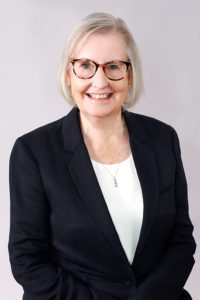 Jill Gianola is a published author and teacher and the founder of Gianola Financial Planning, a fee‐only planning firm. Her work has been recognized by Mutual Funds magazine, which named her one of the top 100 planners in the United States, and Money magazine, which featured her advice in “Secrets of America’s Top Advisors.” She is the author of The Young Couple’s Guide to Growing Rich Together, named “one of 10 books you should read if you want to retire rich,” by the Insider website. She has written personal finance columns for the iVillage website and All You magazine. She has taught personal finance courses at Ohio State University, Franklin University and Columbus State Community College, and economics at Wittenberg University.
Jill Gianola is a published author and teacher and the founder of Gianola Financial Planning, a fee‐only planning firm. Her work has been recognized by Mutual Funds magazine, which named her one of the top 100 planners in the United States, and Money magazine, which featured her advice in “Secrets of America’s Top Advisors.” She is the author of The Young Couple’s Guide to Growing Rich Together, named “one of 10 books you should read if you want to retire rich,” by the Insider website. She has written personal finance columns for the iVillage website and All You magazine. She has taught personal finance courses at Ohio State University, Franklin University and Columbus State Community College, and economics at Wittenberg University.
About Margaret Price
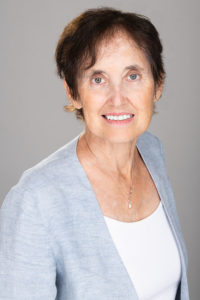
Margaret Price is an author, editor and journalist. She has been an editor at Bloomberg Wealth Manager publication, international editor at Crain Communications’ Pensions & Investments magazine and senior editor at Treasury & Risk Management publication. She also has written for such prominent publications as Investor’s Business Daily, New York Daily News, Newsday newspaper and the Christian Science Monitor. Price is a member and past president of the New York Financial Writers’ Association. She also is the author of the book Emerging Stock Markets: A Complete Investment Guide to New Markets around the World. Active in her community, she is co‐chair of the Women and Families Committee of Community Board 8– Manhattan. Price is a 2021 recipient of a New York State Women of Distinction award, presented by State Assembly Member Rebecca Seawright.
